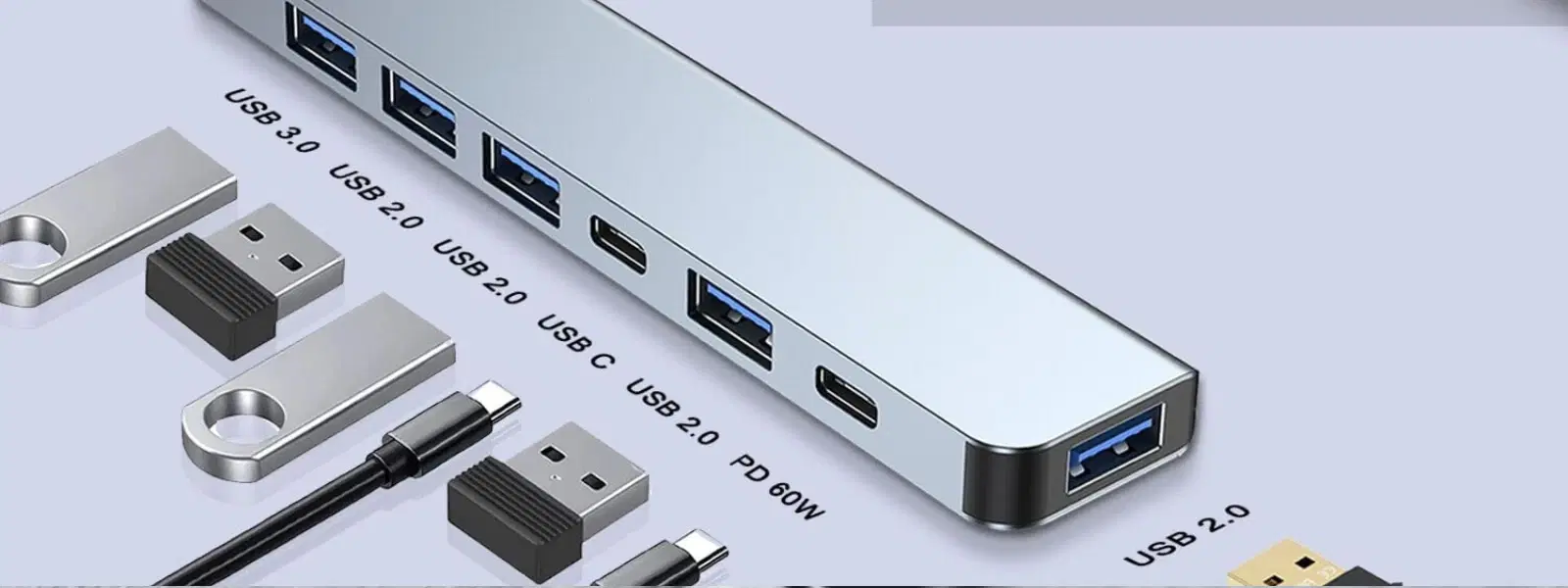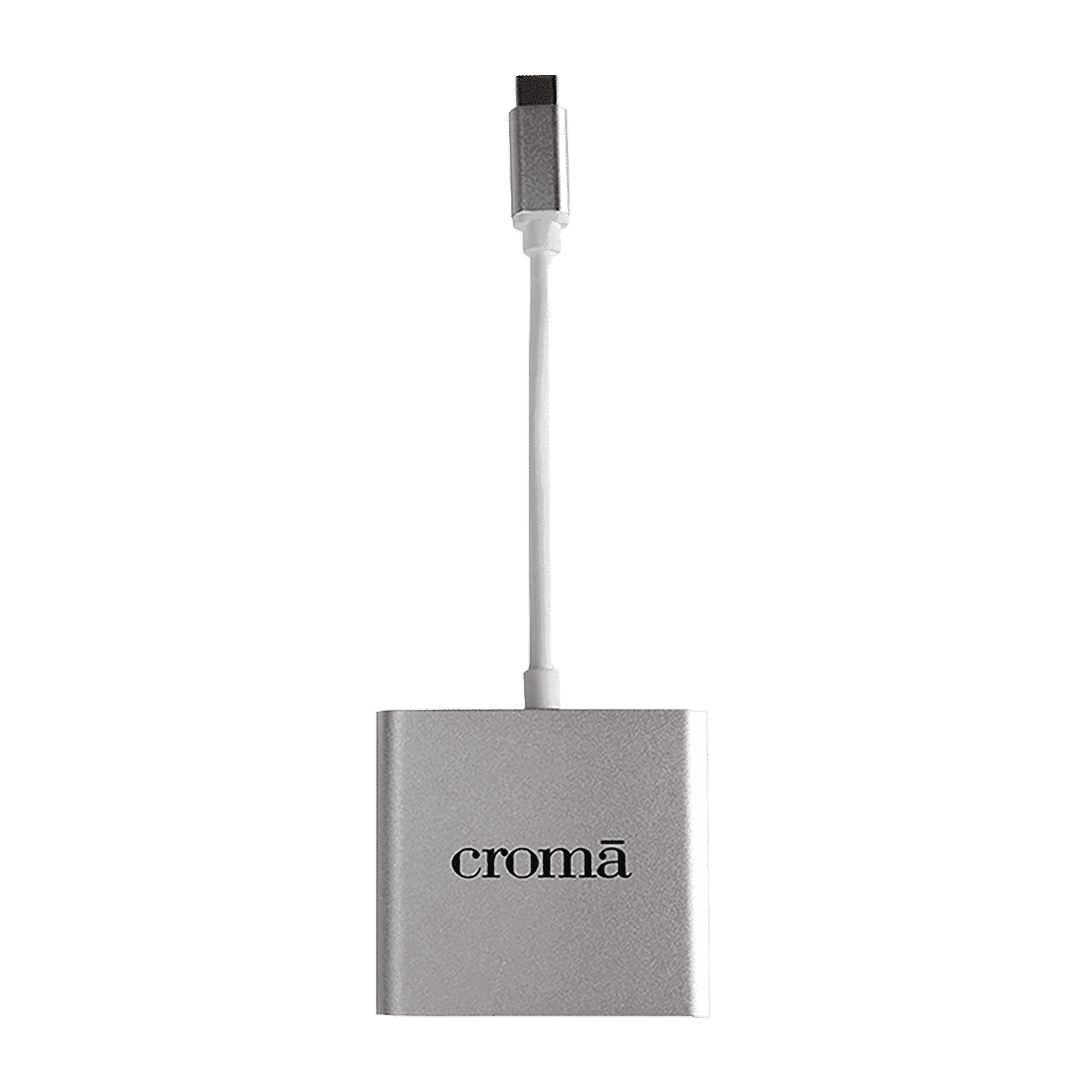
Consumer Electronics
•04 min read

Buy Croma USB 3.0 Type C to USB 2.0 Type A, USB 3.0 Type C, HDMI Type A USB Hub (High-Quality Material, Silver) online at best prices from Croma. Check product details, reviews & more. Shop now!
USB ports are the backbone of modern connectivity, and understanding what USB 2.0 is can help you make smart choices when connecting your devices. We understand that choosing the right connectivity option can be overwhelming, and this checklist is designed to guide you step-by-step through your tech decisions. This checklist provides a clear view of USB 2.0 features, explaining its speed, compatibility, and connector types along with practical tips to ensure you make the most of your tech investments.
USB 2.0 is the second-generation Universal Serial Bus standard introduced in 2000. It quickly became popular due to its backward compatibility, ease of use, and affordability. Its widespread adoption means that billions of devices, from printers to keyboards, can rely on this robust technology.
It is important to understand that USB 2.0 refers to a data transfer standard while USB-C indicates a connector type. Many modern devices use USB-C ports that support multiple USB standards, including USB 2.0. This overlap allows for versatile connectivity across various device types.
One of the key features of USB 2.0 is its data transfer rate of up to 480 Mbps (about 60 MB/s, according to USB Implementers Forum standards). While this speed is a significant step up from USB 1.1, it is noticeably slower compared to newer standards like USB 3.0. However, its performance remains reliable for everyday tasks.
For many common devices such as keyboards, printers, and flash drives, USB 2.0 speed is more than enough. It offers a stable and consistent connection that suits low-bandwidth tasks. For high-bandwidth activities such as video editing or driving external storage devices that demand faster data transfer, users might want to consider the limitations of USB 2.0 and check availability for alternatives if needed.

Buy Croma 10-in-1 USB 3.0 Type C to USB-A 3.0, HDMI, VGA, SD, TF card, USB Type-C PD Port, Ethernet, 3.5mm Audio Jack Multi Utility Hub (Supports Fast Charging, Grey) online at best prices from Croma. Check product details, reviews & more. Shop now!
One of the strengths of USB 2.0 is its compatibility across multiple devices. It works with USB 1.1 and even USB 3.0 ports, although using it with a higher standard port might introduce speed throttling. This seamless compatibility makes it easy to integrate into your existing technology ecosystem without worry.
Usually, USB 2.0 ports can be identified by their uncoloured or neutral look compared to some of the more modern, coloured ports used for higher speeds. Reading your device’s manual or checking the system specifications can also provide confirmation of USB 2.0 support on your device.
USB 2.0 is available in various connector forms such as Type-A, Type-B, and Mini/Micro USB. Type-A is commonly seen in computers and TVs, while Type-B is more frequent in printers and larger peripheral devices. Mini and Micro USB connectors are typically used for smaller gadgets, including some smartphones and cameras.
USB 2.0 cables provide power up to 500 mA (as specified by technical datasheets). This amount of power is suitable for charging smaller devices like smartphones and tablets, ensuring that even if the data transfer speed isn’t the highest, the necessary power to keep devices charged is available. While advanced standards offer higher power delivery, USB 2.0 continues to serve everyday needs reliably.
Designed for both data transfer and power delivery, USB 2.0 cables are reliable and efficient. It is important to note that the cable length and shielding quality can affect performance by limiting interference. This means that investing in good quality cables can help maintain optimal function.

Buy Croma USB 3.0 Type C to USB 3.0 Type C, USB 3.0 Type A, RJ45, HDMI Type A Multi-Port Hub (5 Gbps Data Transfer Rate, Grey) online at best prices from Croma. Check product details, reviews & more. Shop now!
USB 2.0 ports are a versatile feature in consumer electronics, seamlessly connecting peripherals such as keyboards, mice, printers, and webcams. Although there is a difference between using a USB hub versus a direct connection, the standard provides a stable connection that meets the needs of everyday usage. Breaking this down further, direct connections typically offer better speeds and lower latency compared to hubs, which may introduce slight delays.
Insight Corner: "Did You Know?"
USB 2.0 remains one of the most widely supported USB standards in the world, with billions of devices relying on its compatibility and ease of use. While newer standards offer faster speeds and better power delivery, USB 2.0 continues to dominate where speed is not the primary concern.
USB 2.0 refers to the second-generation Universal Serial Bus standard, offering improved data transfer speeds and compatibility compared to its predecessor, USB 1.1.
No, USB 2.0 is all about the data transfer standard while USB-C is simply a type of connector that can support multiple USB standards including USB 2.0.
They differ in terms of speed capabilities and internal architecture, though USB 3.0 ports are designed to be backward compatible with USB 2.0 devices.
Typically, USB 2.0 ports are not colour-coded or are presented with neutral tones unlike the blue often found on USB 3.0 ports. Checking your device’s specifications can also help determine the port type.
While the landscape of technology continues to evolve, USB 2.0 remains a dependable choice for many consumer electronics. Its balance of speed, compatibility, and power delivery ensures that you can connect a variety of devices without unnecessary complications. In the modern digital ecosystem, even platforms like Tata Neu recognise the value of established technology, as ease of use and reliability are integral to everyday tasks. Moreover, shop confidently with Croma's Express Delivery and unmatched after-sales support, ensuring a smooth experience every time. When shopping from trusted brands, you might even earn valuable NeuCoins rewards, making every tech upgrade a smart, cost-effective choice. This blend of traditional reliability with modern digital rewards is at the heart of what makes an informed decision even more fulfilling.